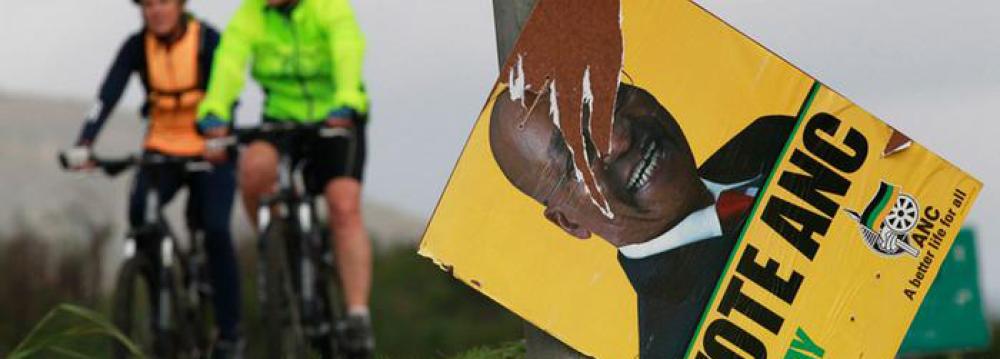Polling stations will open shortly in hotly-contested South African municipal elections. The polls are regarded a key barometer on the nation’s mood ahead of the 2019 general elections.
Opinion polls suggest that the ruling African National Congress party could lose in some major cities for the first time since it came to power with the end of apartheid rule 22 years ago.
South Africa’s economic hub of Johannesburg, the capital city of Pretoria and the coastal town of Port Elizabeth in the Eastern Cape Province (also known as Nelson Mandela Bay) are all predicted to be highly contested battlegrounds in the polls, Deutsche Welle reported.
The country’s biggest opposition party, the Democratic Alliance, has been gaining ground in many areas due to disappointment in President Jacob Zuma’s leadership. The radical leftwing Economic Freedom Fighters under the leadership of one of Zuma’s former close allies, Julius Malema, is also expected to challenge the ANC’s absolute majority held in many parts of the country.
A portion of voters say they have turned toward Zuma out of frustration, who among other things has been accused with about 800 counts of corruption, including the scandal surrounding the spending of public funds on lavish upgrades to his Nkandla family homestead.
Others are disappointed in zero growth in the economy, while more than a quarter of South Africans remain unemployed, with the national currency, the Rand, likely to be downgraded to junk status by the end of the year.
More than 26 million eligible voters are registered to take part in the local elections.
Millions of voters still feel a strong sense of loyalty to the ANC, which after it had been banned as a liberation movement for decades, reinvented itself in the early 1990s as the leading party for black South Africans under anti-apartheid icon Nelson Mandela’s leadership.
More than 20 years since the end of apartheid, South Africa continues to deal with issues it inherited from the previous regime. Racial tensions keep simmering and flaring up episodically, with many previously disadvantaged black voters insisting on restitution for decades of oppression via a land reform deal that would see the white minority forfeit much of their land to the black majority.
After years of corruption under ANC leadership, especially since Nelson Mandela gave up the presidency in 1999, a growing number of people have started looking at other parties, as basic service delivery has slowed down to a halt in certain areas.
Addressing basic needs such as adequate housing, water and electricity supply still remain key concerns for the majority of people in Africa’s most developed nation, as they take to the polling stations.


